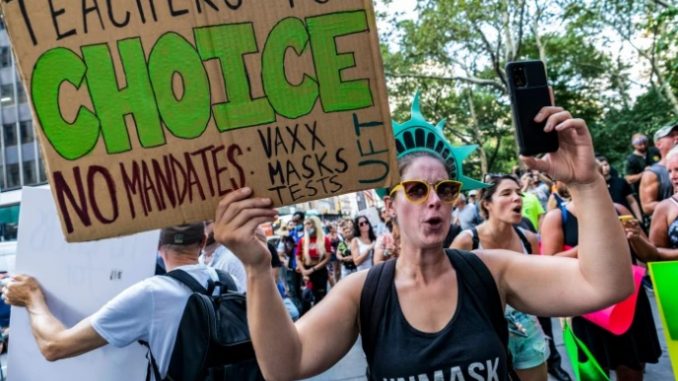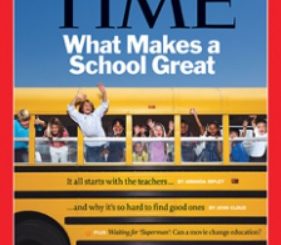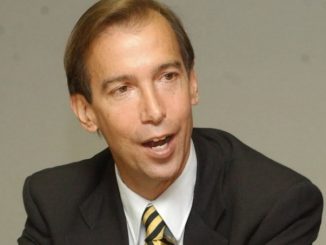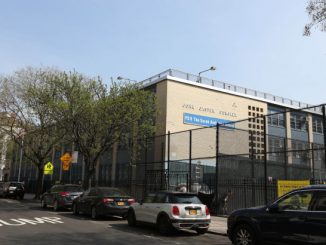
Editor, Parentadvocates.org
Editor, New York Court Corruption
Editor, National Public Voice
Editor, NYC Public Voice
Editor, Inside 3020-a Teacher Trials
SCOTUS reverses decision to review NYC teacher challenge to vaccine mandate
Sam Raskin, New York POST, February 17, 2022
The US Supreme Court announced that it will review a legal challenge to New York City’s vaccine mandate from a group of public school teachers, less than a week after Justice Sonia Sotomayor rejected the appeal.
The appeal was filed last week by 15 Department of Education workers who alleged the city was violating their religious freedom by not accepting their vaccine exemption petitions.
The teachers had previously requested that Sotomayor — who has jurisdiction over lower courts in New York — consider their emergency request, and the liberal justice denied the request without referring the matter to the full court, CNN reported.
But the Big Apple teachers made a new request to Justice Neil Gorsuch, a conservative appointed by former President Donald Trump, who made the decision to allow the court to consider the challenge, according to CNN.
The justices will reportedly consider the appeal early next month, despite the plaintiffs’ ask for a decision this week.
Sotomayor had rejected the emergency appeal from the teachers Friday, the same day as the deadline for city employees to comply with the mandate or face losing their jobs.
More than 1,400 government workers were let go due to refusal to get vaccinated.
The appeal came after several legal objections to former Mayor Bill de Blasio’s vaccination mandate for teachers had been struck down.
Staff at Big Apple public schools have been subject to a vaccine mandate since late September, and all municipal employees have been required to get inoculated against the virus since November.
The Supreme Court has generally upheld COVID-19 vaccine mandates instituted by local governments.
In August, Justice Amy Coney Barrett denied a request by eight Indiana University students to block the school’s COVID-19 vaccine mandate from taking effect.
In December, the Supreme Court let stand New York State’s edict requiring health care workers to get vaccinated for COVID-19 without offering an exemption from the mandate for religious reasons.
But last month, the Supreme Court barred the Biden administration from enforcing a requirement that employees at large businesses be vaccinated against COVID-19 or undergo weekly testing.
The recent cases before the U.S. Supreme Court which challenge the Biden Administration’s vaccine-or-testing mandate for employers with 100 or more employees are unique in many ways. Here are some particularly striking things about the pending COVID suits.
The First Vaccination Cases in 100 Years
Until the coronavirus pandemic, cases addressing vaccination mandates seemed to be a thing of the past. The last time the Supreme Court pondered vaccination mandates was in 1922. That year, the court decided Zucht v. King, a case addressing a city ordinance mandating vaccine certificates as a prerequisite for children to attend public schools. SCOTUS held that vaccination mandates fell under the police power of the states and thus upheld the ordinance.
The First SCOTUS Ruling on an OSHA Emergency Temporary Standard
The Biden Administration’s new mandate, which applies to companies with more than 100 workers, requires either that employees be vaccinated against COVID-19 or that they receive weekly testing while wearing masks on the job. It also requires that employers offer their workers paid time off in order to get vaccinated.
The Occupational Safety and Health Administration (OSHA) adopted this mandate as an emergency temporary standard (ETS), making it exempt from the notice and comment period that administrative laws are otherwise subject to before taking effect. OSHA has the statutory authority to issue an ETS after determining “that employees are exposed to grave danger from exposure to substances or agents determined to be toxic or physically harmful or from new hazards” and “that such emergency standard is necessary to protect employees from such danger.”
Issuing an ETS makes the mandate immediately effective, even pending a legal challenge, until an unless a U.S. Court of Appeals stays or vacates it. When petitioners challenged the COVID-19 ETS, the Fifth Circuit Court of Appeals originally issued an injunction staying the ETS, but the Sixth Circuit soon dissolved that stay. The result is that affected employers must now comply with the provisions of the ETS by today, January 10.
Prior to this case, OSHA has issued only nine other ETSs in its fifty-year history. Six of them were challenged in federal court, and ended up in front of a court of appeals. Of those, five were stayed or vacated, fully or in part, and only one was allowed to take effect. This is the first time, however, that an ETS challenge has reached the highest court in the nation.
Attorneys Dividing Oral Arguments
Oral arguments for the parties seeking to overturn the vaccine-or-testing mandate will be split between two attorneys. One of them will address the interests of the business associations challenging the COVID-19 ETS; the other will represent the arguments of the states likewise contesting the ETS.
Scott Keller, who started his legal career clerking for retired Justice Anthony Kennedy, will speak for the National Federation of Independent Businesses, an organization of business associations and one of the parties challenging the ETS. The NFIB seeks to prevent what it sees as an irreparable injury to its members with arguments that are arguments that are somewhat different from those brought by the states. For example, the NFIB argues that it was not “necessary” for OSHA to issue an emergency mandate without first engaging in its general notice-and-comment rulemaking process, as required by the authorizing statute.
Benjamin Flores, the current Ohio Solicitor General and prior judicial clerk to late Supreme Court Justice Antonin Scalia, will address the interests of the 27 Republican-led states challenging the mandate. Those states argue that the risk presented by COVID-19 is not “grave,” that the ETS is not a “temporary” response, and that there is no “emergency,” as required by the authorizing statute. The states also argue that interpreting the authorizing statute as permitting OSHA to issue the ETS is unconstitutional because this power exceeds the federal government’s authority under the Commerce Clause, as the regulated activity is non-economic.
This Vaccine Mandate Affects Everybody
While the COVID-19 ETS will affect 84 million workers across numerous industries and in various roles, prior ETSs were more industry-specific. Unlike Biden’s vaccine-or-testing mandate, the previous standards addressed risks that were more tied to specific lines of work, e.g., exposure to asbestos, pesticides, carcinogens, or other chemicals that occurred at the workplace. Thus, what the Supreme Court decides will have an impact on the lives of countless American workers from across all fields rather than a select group of workers.
Related Resources:
- What Are the Requirements for a Vaccine Religious Exemption? (FindLaw’s Law and Daily Life Blog)
- Can I Sue a Vaccine Manufacturer for Side Effects? (FindLaw’s Learn About the Law)
- The Constitutionality of Vaccine Mandates (FindLaw’s Don’t Judge Me Podcast)





Be the first to comment